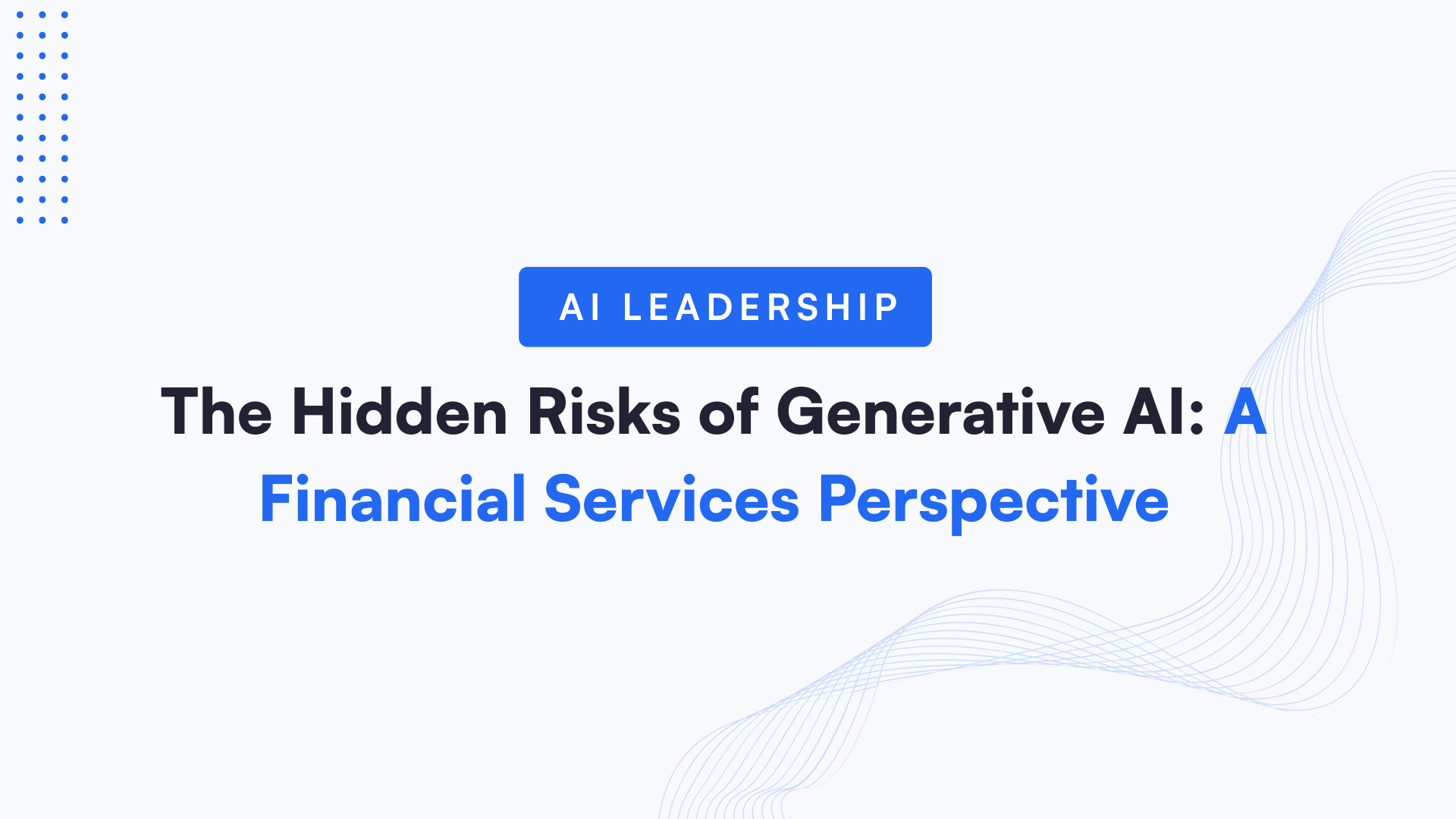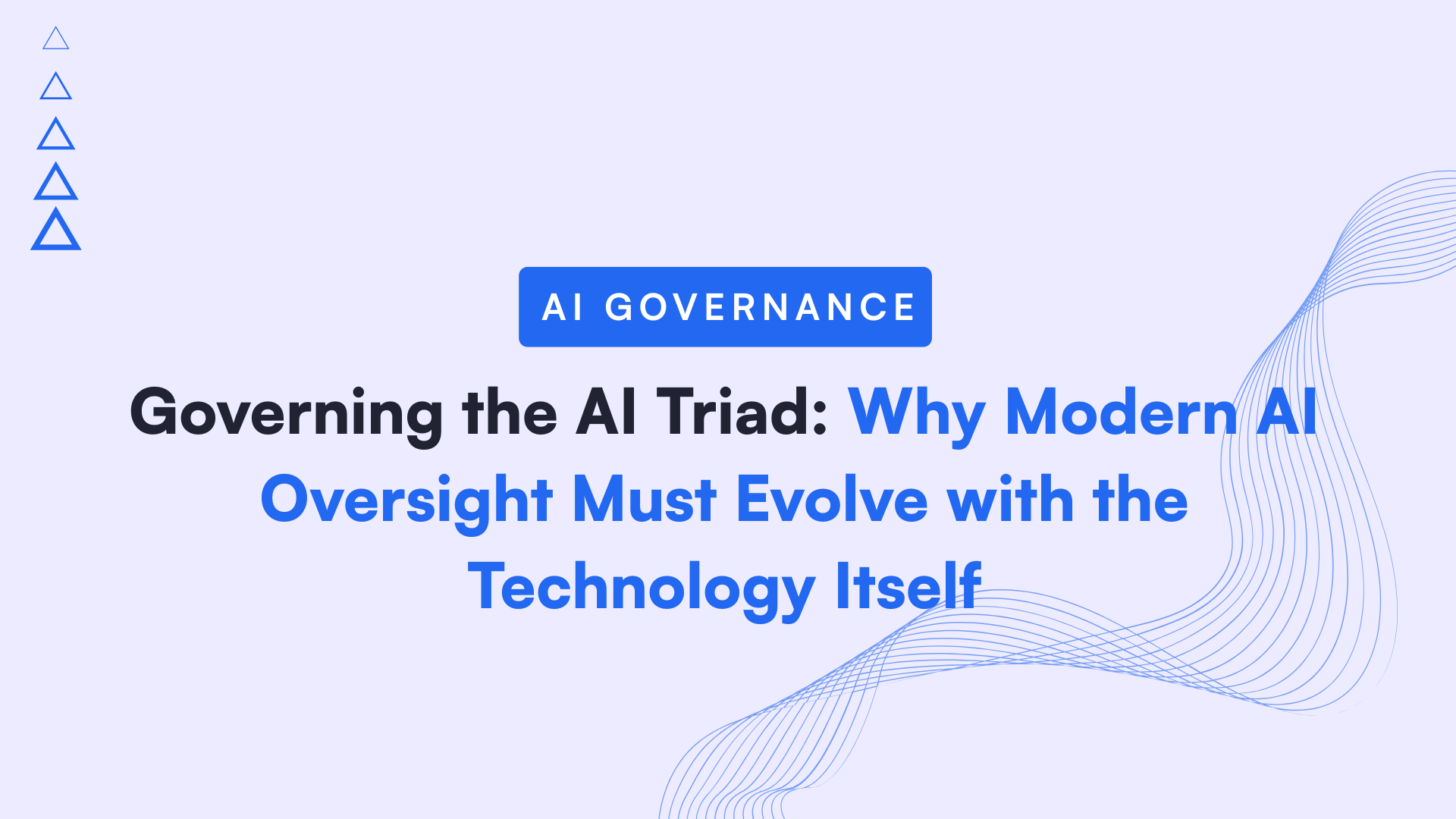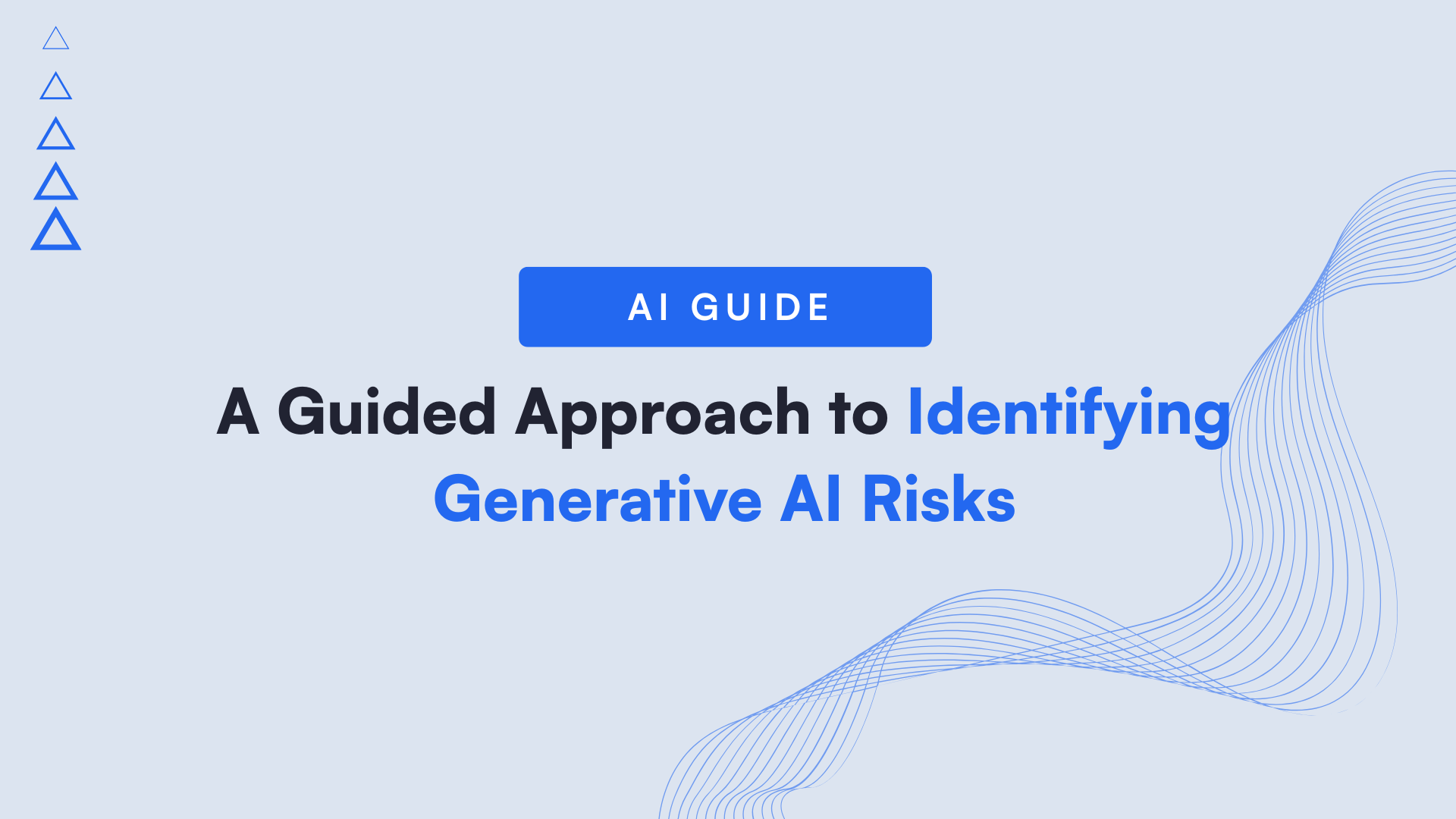As businesses across the UK and EU rush to embrace AI, we are facing a critical challenge that goes far beyond technical implementation. The real question is not whether we can build AI systems - it is whether we can build them responsibly.
The Wake-Up Call Every Business Leader Needs
Picture this: You are in a boardroom, and someone asks, "Are we using AI ethically?" The room falls silent. Not because people don't care, but because most are not entirely sure what that means in practice.
This scenario plays out in businesses across Europe every day. As the co-founder and CEO of Altrum AI, I have witnessed this uncertainty firsthand. We are building the world's first autonomous AI governance platform because I have seen the confusion - and sometimes fear - in the eyes of brilliant business leaders who know AI is transformative but are not sure how to navigate its complexities responsibly.
The truth is, we are caught between two worlds: the aspirational realm of "Ethical AI" and the practical demands of "Responsible AI." Understanding this distinction is not just academic - it is the key to unlocking AI's potential while protecting what matters most to us as human beings.
The Two Faces of AI Governance: Ethics vs. Responsibility
Let me share something that might surprise you: Ethical AI and Responsible AI, whilst often used interchangeably, are fundamentally different concepts. Think of them as two sides of the same coin - both essential, but serving distinct purposes.
Ethical AI is your moral compass. It is the philosophical foundation that asks: "What values should guide our AI decisions?" It encompasses principles like fairness, transparency, human dignity, and privacy. When we talk about Ethical AI, we are discussing the "why" behind our choices - the fundamental values that should never be compromised.
Responsible AI is your operational framework. It is the practical implementation that asks: "How do we actually build and deploy AI systems that embody our values?" This includes governance structures, risk management processes, compliance mechanisms, and continuous monitoring. Responsible AI is the "how" that turns good intentions into measurable outcomes.
Here is where it gets interesting: You can't have one without the other.
Why Good Intentions Are Not Enough
Across the UK and EU, I have met countless leaders who are deeply committed to doing the right thing with AI. They have read about algorithmic bias, they understand privacy concerns, and they genuinely want to use AI for good. Yet many of their AI initiatives still fall short of their ethical aspirations.
Why? Because having ethical principles without responsible implementation is like having a beautifully designed blueprint without construction workers. The vision exists, but it never becomes reality.
Consider the recent surge in generative AI adoption. According to Accenture research, only 35% of global consumers trust how organisations implement AI technology. This trust gap is not because businesses lack good intentions - it is because there is often a disconnect between ethical aspirations and operational reality.
The European Advantage: Leading by Example
Here in Europe, we have a unique opportunity to set the global standard for responsible AI governance. The EU AI Act represents the world's most comprehensive AI regulation, and the UK is developing its own robust framework. But regulation alone won't solve the ethics-to-action gap.
What we need is a cultural shift in how we approach AI governance. Instead of treating ethics as a checkbox exercise, we must embed responsible practices into every stage of our AI journey—from initial concept to ongoing deployment.
This means:
- Building diverse teams that bring different perspectives to AI development
- Implementing continuous monitoring systems that track both performance and ethical impact
- Creating clear accountability structures so everyone knows who is responsible for what
- Establishing regular audits that assess not just technical performance but ethical compliance
- Fostering transparent communication about how our AI systems work and what they are designed to achieve
The Business Case for Getting This Right
Let me be direct: Responsible AI is not just about doing good—it is about doing well. Businesses that successfully bridge the ethics-to-action gap will have significant competitive advantages:
Trust becomes a differentiator. In an era where consumers are increasingly sceptical about AI, organisations that can demonstrate genuine responsible practices will earn customer loyalty and market trust.
Risk mitigation protects the bottom line. Proactive governance prevents costly mistakes, regulatory fines, and reputation damage that can result from poorly implemented AI systems.
Innovation accelerates through clarity. When teams understand both the ethical boundaries and practical frameworks, they can innovate more confidently and effectively.
Talent attraction improves. The best AI professionals want to work for organisations that share their values about responsible technology development.
Where Do We Go From Here?
The conversation about AI ethics has been dominated by technologists and academics for too long. It is time for business leaders - people who understand both human needs and operational realities - to take the lead.
This does not mean you need to become an AI expert overnight. It means asking the right questions:
- What values do we want our AI systems to embody?
- How do we translate those values into concrete policies and processes?
- Who in our organisation is accountable for AI governance?
- How do we measure success beyond just technical performance?
- What support do we need to bridge the gap between our ethical aspirations and responsible implementation?
Join the Conversation That Matters
Here is what I believe: The future of AI in business won't be determined by the most advanced algorithms or the biggest datasets. It will be shaped by the organisations that best understand how to align powerful technology with human values.
At Altrum AI, we are building tools to make this alignment easier and more sustainable. But the technology is only part of the solution. The real transformation happens when business leaders like you join the conversation about what responsible AI governance looks like in practice.
I invite you to be part of this crucial dialogue. Share your experiences, ask difficult questions, and help us collectively figure out how to harness AI's potential while staying true to our values as humans and as businesses.
The gap between ethical AI and responsible AI won't close itself. It requires all of us - technologists, business leaders, policymakers, and citizens - working together to build a future where AI truly serves humanity's best interests.
Because at the end of the day, the most important question is not whether we can build intelligent machines. It is whether we can build them wisely.
What is your experience with AI governance in your organisation? How are you bridging the gap between ethical intentions and responsible implementation? I would love to hear your thoughts and continue this vital conversation.



.png)









.png)

.png)
